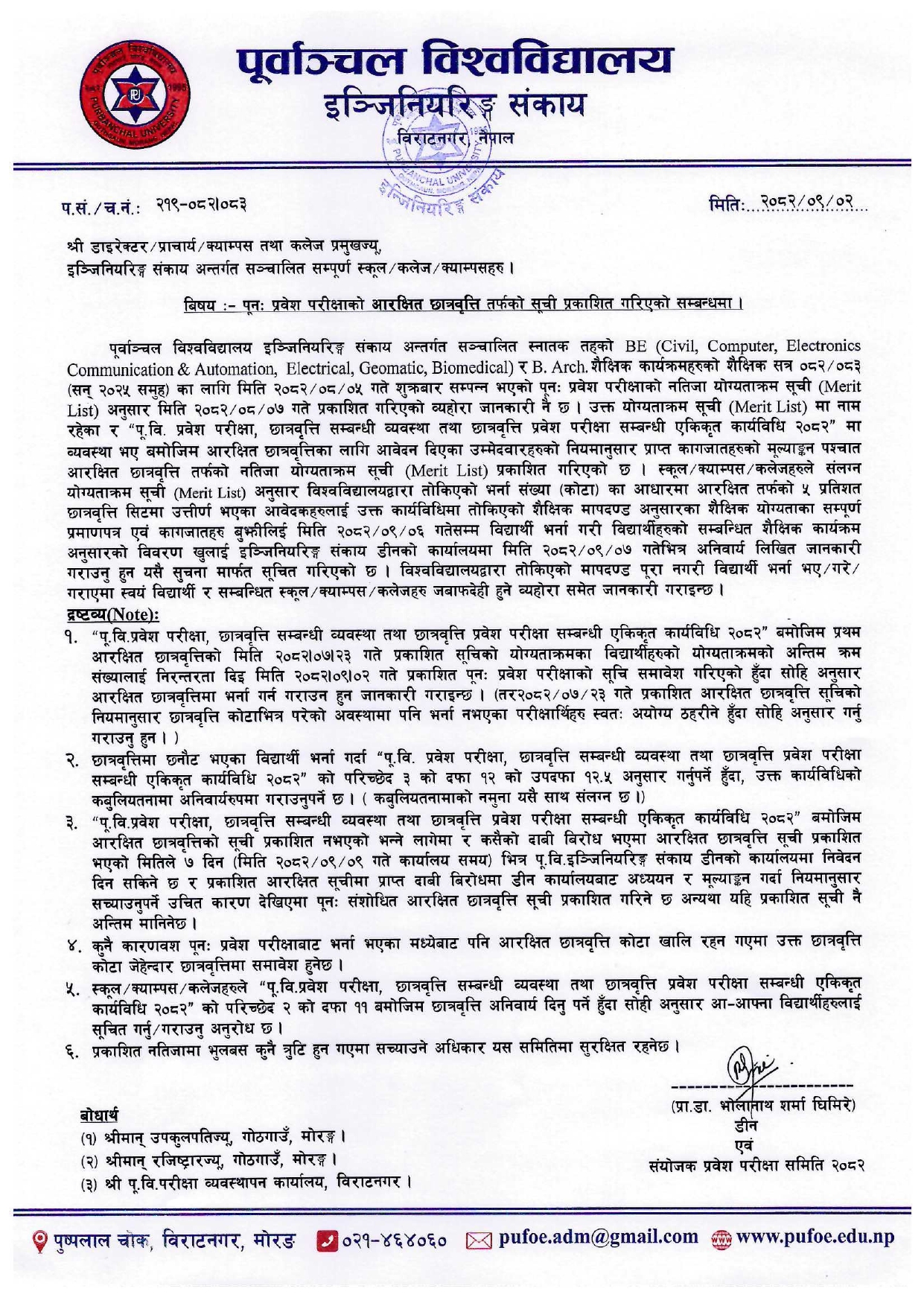Purbanchal University (PU) was established as the second university (after the restoration of multiparty democracy in Nepal in 1990) in 1993 by the government of Nepal with the aim to develop higher education in the country in a decentralized manner and to expand the opportunities of higher education into other parts of the country as well. The establishment of the University was visualized as an extraordinary endeavor by the Government of Nepal to create an academic center of excellence in the Eastern Development Region of Nepal.
Purbanchal University conducts its academic programs through its five constituent campuses as well as more than 123 affiliate colleges. Since its establishment, the University has been motivated by its fundamental objective of preserving, refining, inventing, adopting, extending and transmitting knowledge in an environment that fosters free enquiry and open scholarly debate leading to all-encompassing development of the rural people, their economy and environment. It is offering 74 different courses at undergraduate, post graduate and MPhil level through 110 different colleges located in the different parts of the country.
The Vision of Purbanchal University, Faculty of Engineering is to become the center of excellence in engineering education and research in South Asia. The Faculty will strive to be a dynamic center of innovation and creativity dedicated to teaching, lifelong learning, professionalism, research, entrepreneurship and partnership with national and international communities to improve the quality of life of the community.
Our Mission is to produce engineering graduates with both a strong base of technical knowledge and the complementary skills needed to be successful professional engineers in the modern world. This faculty is committed to promote stronger linkage between industry, engineering community and institutions.
Our specific goals are
Build programs to meet evolving student, industry, and community needs.
The main aim of engineering education is to provide students with new innovative technologies, acquire engineering skills, and undertake engineering as their profession. Engineering graduates in society have a responsibility to conceive new ideas and construct a development path for society. They play important roles in sustaining the developed environments. Therefore more emphasis is given towards creating engineering graduates in society.
Recently Faculty of Engineering (FoE) has been segregated from the Faculty of Science to strengthen engineering programs’ academic and overall development. Under the Faculty of Engineering, the university offers 7 different undergraduate programs through one constituent and 15 different affiliated schools/colleges and 4 graduate-level programs at 4 different schools/colleges.
